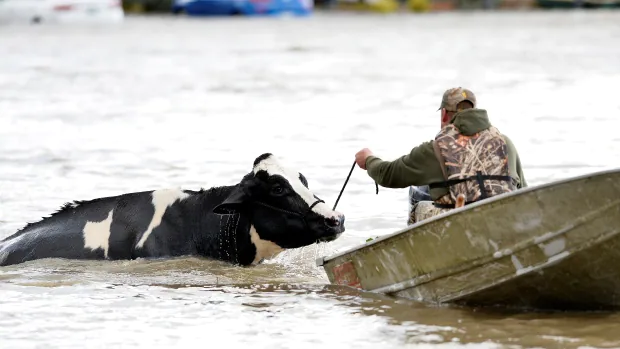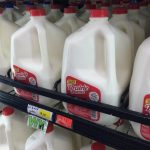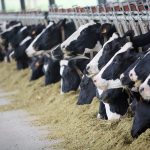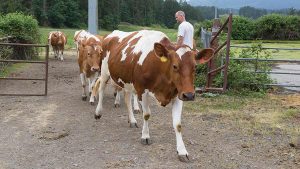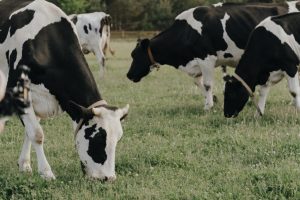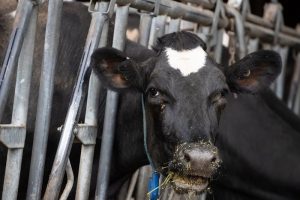
“This is a very difficult time for agriculture in B.C. and our producers,” said Lana Popham during a news conference Wednesday afternoon.
“Over the last two days, I’ve been able to have FaceTime discussions with farmers, and some of them are in their barns, and some of their barns are flooded, and you can see the animals that are deceased,” she added. “It’s heartbreaking.”
Popham said her ministry has made more than 300 contacts with B.C. agriculture groups and individual farms since the flooding began earlier this week.
“I feel confident that we’ve covered off most commodity groups and people understand that we’re there with them,” she said.
Hundreds of farms have been affected by flooding, including both those that are underwater and those that have stayed dry, but are cut off from necessary resources.
Many farmers on Sumas Prairie in Abbotsford have stayed put, despite evacuation orders, refusing to abandon their animals.
Owners, along with volunteers, are desperately trying to save cattle.
Frightened cows are being towed one by one through treacherous flood waters behind jet skis. They are then pulled to safety and herded into trailers.
One of the people using a boat to help in the effort is Abbotsford resident Menno Koehoorn.
“The cows are very confused,” Koehoorn told CTV News. “They’re of course shivering and shaking and panicked … There were a lot of brave people out there – 50, 60 people wading cows across.”
He has spent the past two days on the water.
“The best thing is we’re community, so everybody is helping everybody,” said Koehoorn.
Still, the situation is heartbreaking.
“There’s going to be dead livestock and dead chickens and some other things,” said Abbotsford Mayor Henry Braun. “We know that a lot of the cows came out. The heroic efforts of our farmers was unbelievable. I wish you could see what I saw.”
But the emotional mayor says many calves drowned when waters rose to four or five feet.
Paulette Johnson, 66, and her 86-year-old husband David, were rescued from their farm on Tuesday after a frightening 24 hours in the flood zone. Her husband has been sick and has since been hospitalized.
“I was scared, but I didn’t let myself be scared because I knew I couldn’t be,” Johnson said. “I was really worried about my husband and my livestock.”
She says the water came up fast, flooding her home and leaving the cows standing in water as well.
“The hay started floating and they were eating the hay as it floated,” she explained.
She says her neighbours were able to care for the animals and the water had started to recede at their farm.
She’s extremely grateful to those who rescued her after previous attempts had failed.
Meanwhile, Popham promised disaster relief funds for farmers affected by the disaster, and added that B.C. is working with other provinces, the federal government, and private businesses not affected by the floods in an effort to secure food and other resources – such as medical care – for animals that survived the flooding.
“There will have to be euthanizations that happen, but there are also animals that have survived that are going to be in critical need of food in the next few days,” Popham said.
Flooding in the Fraser Valley also inundated the province’s animal health lab, which conducts testing for diseases in livestock in the province, as well as safety testing for B.C. milk, according to the minister.
Popham said Alberta and Saskatchewan have offered their labs for milk testing while B.C.’s facility is out of commission.
The agriculture minister’s remarks came after earlier comments from the mayor of Abbotsford regarding the devastation in the Sumas Prairie.
“I saw barns that looked like they were half full of water,” Braun said. “I can’t imagine that there are any birds left alive.”
Dairy and chicken farms cover the area, where residents in 1,000 properties were told to evacuate on Tuesday.
Farmers spent hours Tuesday working to transport their animals to safety, in some cases relying on boats and other watercraft.
Braun said he watched farmers trudge through water that was 1.5 metres deep to get the livestock out.
The situation grew more frantic Tuesday night when it appeared a crucial water pump station would be overwhelmed. Braun urged those farmers who had ignored the evacuation order to leave their animals and get out.
By Wednesday, the pump station had been surrounded by sandbags and Braun said he felt better about the situation.
The flooding situation in parts of southern British Columbia has forced farmers to lean on each other to save their animals, says the chair of the board for the BC Dairy Association.
Holger Schwichtenberg said he was not yet sure how many farmers were working to move their milking cows, but in such situations, they would reach out for help to get their animals off-site.
He said 25 to 30 cows were being transported to his own farm in Agassiz on Tuesday from another farm in the Fraser Valley, east of Vancouver.
“This is an example of an industry coming together when things really get ugly,” Schwichtenberg said. “We’re doing the best that we can with the situation that we’ve been handed and it’s a tough one.”
Moving livestock is time consuming and stressful for the animals and people involved.
“You’ve got trucks, you’ve got neighbours, you’ve got whoever’s got a pickup truck or something to haul cattle in and you start moving them to higher ground or you’ve made arrangements to get them off-site,” Schwichtenberg said.
Braun said Tuesday watching farmers work to save their animals was “heartbreaking.”
“They want to protect their animals. Many would give their lives for their animals,” Braun told reporters.
Schwichtenberg said this week’s flooding has put a strain on the industry, which is still reeling from a disastrous summer.
“We had a long, hot summer, we had a very poor growing season unless you had irrigation, the ongoing effects of COVID, and now we have this situation,” he said.
“It’s testing the resilience of dairy farmers, that’s for sure.”
With files from The Canadian Press.
